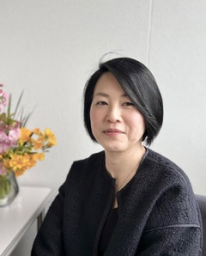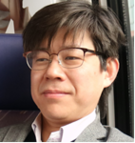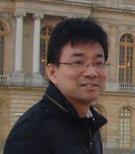Faculty Staff
Psychological Development & Family Division
NAGATA Masako, Ph.D.
Professor
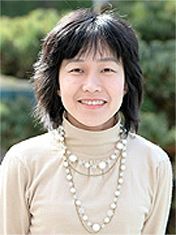
At the moment she has mainly two researches. Firstly, she is investigating the system that enables early intervention in children who suffer from an unbalanced condition such as developmental disability. Previously, the state of support for developmentally disabled children and childcare support were yet to be assessed, even though at an early stage many parents were experiencing difficulties in bringing up and relating to their own children. Now, together with a city in the Aichi prefecture, she is developing and promoting the establishment of a childcare support system, for both parents and children who experience difficulties in their upbringing and in relating to their parents. This could be practiced within the legal framework of a local maternal and child welfare system. While developing this research, she was gradually becoming aware that some children with behavior problems could be affected by a vicious circle of physical abuse or maternal mental instability such as depression. It is also becoming clear that children who are treated at an early stage tended to show positive adaptation results at a later period. In the classes for around two years old with suspected autistic spectrum, we succeeded in lowering parental stress and promoting the positive development of children.
Secondly, her current research deals with the support system for the family and infants at risk due to being underweight at birth. Thanks to the progress of medical technology, the diagnoses of infants in the womb became possible, helping the survival of babies born with a weight of around three hundred grams. While the clinical sites where babies arrive to the world are filled with happiness and celebrations, below the surface there are also conflicting issues, such as infertility treatment, long term hospitalization of mothers, miscarriage and stillbirth.
Although only a few clinical psychologists were at work in NICU fifteen years ago, over one hundred forty clinical psychologists are currently active in this field in Japan. They play an important role in perinatal care and were officially included in the list of “Guidelines for the Maintenance of Perinatal Care System” at the end of January, 2011. The research they have carried out so far reveals that if there are any complications in pregnancy or in childbirth lead to higher levels of maternal depression, which in turn requires a longer periods of bonding and also increases the risk of developmental disabilities.
In the future, she would like to establish a certain model for perinatal psychology which has developed uniquely in Japan, while attempting to investigate the very early intervention system.
Publications (selected)
- M. Nagata,Y. Nagai, H. Sobajima, T. Andou, Y. Nishide, & S. Honjo. Depression in the early postpartum period and attachment to children in mothers of NICU infants. Infant and Child Development 13, 93–110. 2004.
- M. Nagata, “The influence of psychological care given during perinatal care to the mother’s maternity blues: from the survey ten years after,” Journal of FOUR WINDS Association for Infant Mental Health, 56–61, 2008. (in Japanese)
- M. Nagata “Support of the relationship in early childhood-during perinatal period and field of developmental support.” Japanese Journal of Medical and Psychological Study of Infants 20(1), 5-12, 2011. (in Japanese)
- M. Nagata, “Psychological care during perinatal period: Support of parent and baby’s bonding and Mental Health” Tomi Shobo, 2011.
- M. Nagata “Child care support in Perinatal Medical care” Japanese Jurnal of Clinical Psychology 69 12(3) 311-316, 2013 Kongo shuppan
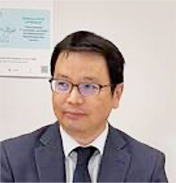
I am a professor at the Nagoya University Psychological Support & Research Center for Human Development, and I specialise in clinical psychology. I am affiliated with Nagoya University Graduate School of Education and Human Development, and I have provided lectures and seminars regarding clinical practice for training candidates for the role of clinical psychologist. My research has focused on identification of psychosocial risk factors for mental health problems among pregnant and postnatal mothers, especially the emotional bonding disturbances between mother and infant. My second focus is the cross-cultural study of mental health problems among adolescents. I have worked as an original member of the Eurasian Child and Adolescent Mental Health Study group (ECAMHS), an international collaboration study group started in 2016, now renamed the Global Child and Adolescent Mental Health Study group (GCAMHS), and consisting of approximately 20 countries worldwide.
Publications (selected)
- Nakano, M., Sourander, A., Luntamo, T., Chudal, R., Skokauskas, N., & Kaneko, H. (2020). Early risk factors for postpartum depression: A longitudinal Japanese population -based study. Journal of Affective Disorders, 269, 148-153.
- Upadhyaya, S., Chudal, R., Luntamo, T., Sinkkonen, J., Hinkka-Yli-Salomaki, S., Kaneko, H., & Sourander, A. (2019). Parental Risk Factors among Children with Reactive Attachment Disorder Referred to Specialized Services: A Nationwide Population-Based Study. Child Psychiatry and Human Development, 50(4), 546-556.
- Nakano M, Upadhyaya S, Chudal R, Skokauskas N, Luntamo T, Sourander A, Kaneko H. (2019). Risk factors for impaired maternal bonding when infants are 3 months old: a longitudinal population based study from Japan. BMC Psychiatry, 19, 87.
- Maezono J, Hamada S, Sillanmäki L, Kaneko H, Ogura M, Lempinen L, Sourander A. (2019). Cross-cultural, population-based study on adolescent body image and eating distress in Japan and Finland. Scandinavian Journal of Psychology, 60(1), 67-76.
- Hamada, S., Kaneko, H., Ogura, M., Yamawaki, A., Maezono, J., Sillanmäki, L., Sourander, A., & Honjo, S. (2018). Association Between Bullying Behavior, School Safety, and Self-Cutting: A Japanese Population-Based School Survey. Child and Adolescent Mental Health, 23(3), 141-147.
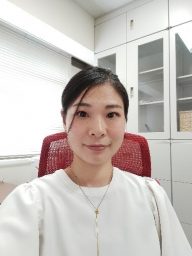
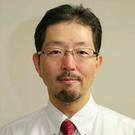
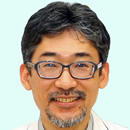
Psychology-Society Interaction Division
NOMURA Asuka, Ph.D.
Associate Professor

I am interested in children’s well-being and environment surrounding them. In previous studies, I have revealed that how children perceive their physical and psychological well-being, relationships with family, friends, and school teachers via the questionnaire, projective methods (sentence completion test, kinetic school drawing, and so on), and observation in the classroom. I am also participating in a collaborative study comparing the characteristics of well-being between Japanese and overseas children. In the future, I would like to promote research to clarify the characteristics of well-being in children who have some needs such as developmental disabilities, and think about what kind of psychological support is important for these children, their parents and teachers.
Publications (selected)
- Nomura, A., Matsumoto, M., Suzuki, N., Inagaki, M., Tsuboi, H., & Morita M. (2019). Foreign Students’ Well-being in Japan: From the Perspective of Japanese Language Proficiency. Journal of School Mental Health, 22, 60-70. (in Japanese)
- Nomura, A., Matsumoto, M., Tsuboi, H., Suzuki, N., Hatagaki, C., Kaito, K., Oya, Y., & Morita, M. (2013). Using a Sentence Completion Test to study the self-image and interpersonal relationships between Japanese and Finnish students. Journal of Japanese Clinical Psychology, 31, 844-849. (in Japanese)
- Nomura, A. (2013). An overview of research on social withdrawal in childhood. Bulletin of the Graduate school of Education and Human Development, 60, 103-110. (in Japanese)
- Nomura, A., Matsumoto, M., Tsuboi, H., Suzuki, N., Kaito, K., Makita, R., & Morita, M. (2012). Using a Sentence Completion Test to Study the Self-image and Interpersonal Relationships of Japanese Students at School. Journal of School Mental Health, 15, 67-78. (in Japanese)
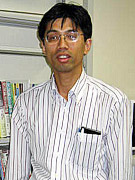
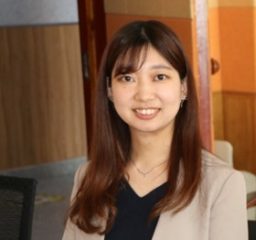
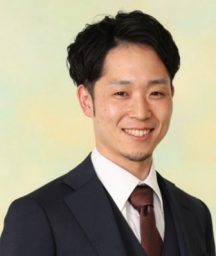
Clinical Support Division
SUZUKI Kenichi, Ph.D.
Professor
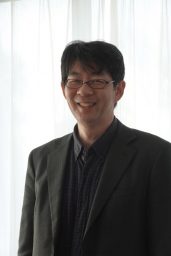
Dr. Suzuki is a clinical psychologist whose original field was the mental health of Duchenne muscular dystrophy patients. At Hiroshima University, he completed his doctoral dissertation on the patients’ internal processing of the illness and coping with death. After serving as an assistant teacher for three years at Hiroshima University, he pursued psychoanalysis study at the William Alanson White Institute of Psychiatry, Psychoanalysis and Psychology in New York from 1999 to 2003, and received his certification thereafter.
From 2004, he worked as a student counselor at Kanazawa University until 2011, when he moved to the Center for Student Counseling in Nagoya University. His current research interest is in establishing an interpersonal psychoanalytic approach to working with university students.
Publications (selected)
- Suzuki K. (1995) The Psychological world of patients with Duchenne muscular dystrophy: Attitude toward the illness and death. Japanese Journal of Child and Adolescent Psychiatry, 36, 271—284. (in Japanese)
- Suzuki K. (1999) Psychological states of parents with sons who have Duchenne muscular dystrophy. Japanese Journal of Child and Adolescent Psychiatry, 40, 345—357. (in Japanese)
- Ichimaru T., Kuranaga K., Morita H., & Suzuki K. (2001) The effects of a child’s vicious murder on his schoolmates: A longitudinal approach with the S-HTP technique. Journal of Japanese Clinical Psychology, 19, 329—341. (in Japanese)
- Suzuki K. (2008) Trends of University Counseling Services in the U.S. with Particular Emphasis on Those in New York State: Based on the Results of a National Survey and from the Point of View of Psychoanalysis. The Japanese Journal of Student Counseling, 29, 273—284. (in Japanese)
- Suzuki K. (2011) The interpersonal experience between Boku and Sacchan in the Japanese children’s song Sacchan. Bulletin of Center for Student Counseling, Nagoya University, 11, 16—19. (in Japanese)
- Suzuki K. (2012) A review of dream analysis on student counseling. Bulletin of Center for student Counseling, Nagoya University, 12, 22—28. (in Japanese)
SUGIOKA Masanori, Ph.D.
Associate Professor
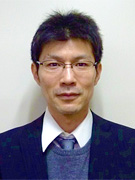
My special fields are student counseling and community psychology. Especially, I am interested in psychological problems in adolescence, such as social withdrawal, self- injury, suicidal behavior, and identity crisis. The main theme of my search is to explore the relatedness of people, including psychological dynamics, family system, and community.
I have ever been researching the ways to support ethnic minorities in Japan, and to prevent student suicide. My special interest now is crisis intervention to prevent student suicide and care for the surviving family members.
Publications (selected)
- Sugioka Masanori & Kodama Kenichi (2007). An attempt at networking supporters for Japanese-Brazilian students in Japan. Japanese Journal of community psychology, 11 (1), 76-89.
- Sugioka Masanori (2011).The present situation and topic of student counseling for Autistic spectrum disorder in Kagawa University. Japanese Journal of Psychotherapy, 37 (2) 154-159.
- Sugioka Masanori & Wakabayashi Sumino (2012). A basic study on the psycho-education of suicide prevention in university. Bulletin of the Hiroshima Bunka Gakuen University, Faculty of Arts and Sciences (2),9-16.
- Sugioka Masanori (2014). Psychotherapeutic approach to female college student with Nausea. Bulletin of Kagawa University Health Service Center 3,167-173.
- Sugioka Masanori (2014). Relationship between Depression score and psychological stance about suicide,and suicide trend in University Students. CAMPUS HEALTH51 (2), 205-210.
KUDO Shinpei, Ph.D.
Associate Professor
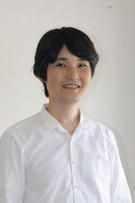
My clinical work has been grounded in psychoanalysis and attachment theory. Although my clinical experience is longest in psychiatry, I have been involved in school counseling, treatment in prisons, running a private rehabilitation facility for released prisoners, and clinical work in a private practice setting. Currently, I am engaged in support of academic activities, that is, academic learning support for students with disabilities. I am interested in what pathologies and problems can lead to when safety and security as a foundation for living is compromised, regardless of whether the student has a disability or not.
kudo.shimpei.r8[at]f.mail.nagoya-u.ac.jp
Publications (selected)
- Attachment Theory and Clinical Applications (multi-authored)
- Clinical Practice and Application of Attachment Theory (multi-authored)
- Assessment and Support Based on Attachment (co-edited)
- Evidence-based psychodynamic treatment (Japanese Journal of Psychotherapy, 42)
- Modelling delinquency and crime through attachment perspectives (co-authored, Japanese Psychological Review, 60)
- Caring Security (single-authored)
TAKEMOTO Miho
Assistant Professor

Focusing on students’ participation in society, I conduct research and practice on effective support for each student to make a satisfactory career choice. Careers are developed through a chain of individual decisions. I am looking for ways to support students with different abilities, developmental states, and mental states so that they can develop their careers while deepening their understanding of themselves.
My research interests are to support the social participation of students with disabilities. In particular, I am researching and implementing measures to help students with developmental disabilities to achieve a highly satisfactory career development.
Publications (selected)
- Kaneko, M., Ishihara M., Takemoto, M., & Goto, S. (2018). Social Participation Anxiety in Long-Term Truant Junior and Senior High School Students: An Attempt at Typification Using the Baum Test. Bulletin of the Psychology and Clinical Counseling Office, Aichi Shukutoku University, 22, 35-47.
HAYASHI Yoko
Assistant Professor
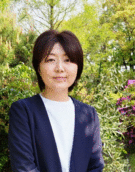
My specialty is supporting individuals with characteristics of developmental disabilities and their families. My previous studies have focused on elementary and middle school students with autism spectrum disorder who have strong perfectionistic obsessions, with the theme of developing programs to support them.
I have been engaged in clinical activities at infant and early childhood development consultation centers, medical treatment and education centers for challenged children, and the outpatient psychiatric department for children in hospitals, among others. Recently, I have also been engaged in student counseling and support for students with disabilities at universities.
University students with developmental disabilities tend to experience difficulties in various areas, including participating in class, working on assignments, relating to other people, and managing daily life. As a result, they are said to be prone to secondary mental health problems such as anxiety and depression. Meanwhile, I have met several students who can go through university life without major difficulties and choose a career path that suits them if they are aware of their strengths and weaknesses, including the characteristics of their disabilities, and if they are provided with appropriate environmental accommodations. Going forward, I will be committed to thinking about how to support the adaptation to student life and promote the self-understanding of university students with developmental disabilities.
Publications (selected)
- Wada, K., & Hayashi, Y. (2015). Mental experience of mothers having children with high-functioning pervasive developmental disorder. Journal of Japanese clinical psychology, 33(2), 138-149. (in Japanese)
- Hayashi, Y., Okada, R., Tani, I., Yoshihashi, Y., & Tsujii, M. (2012). A Survey on obsessive and compulsive symptoms in pervasive developmental disorder. Japanese journal of child and adolescent psychiatry, 53(5), 607-622. (in Japanese)
- Hayashi, Y., Yoshihashi, Y., Takura, S., & Tsujii, M. (2010). Attempt of “intervention in perfectionism” program making intended for children with high function pervasive developmental disorders. Psychiatria et neurologia paediatrica Japonica, 50(4), 407-417. (in Japanese)
